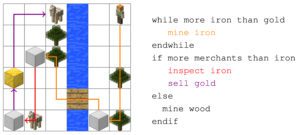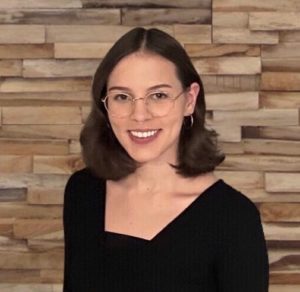Prof. Elaheh Ahmadi is working to design a new kind of semiconductor that can provide high power at high frequencies


Prof. Elaheh Ahmadi is working to design a new kind of semiconductor that can provide high power at high frequencies
Splitting the path into difficult and easy terrain speeds up path planning for robots that use “hands” to maintain balance on uneven ground.
The post Faster path planning for rubble-roving robots appeared first on Michigan Engineering News.
Research led by Prof. Zetian Mi has been honored with the 2020 Editor-in-Chief Choice Award from “Photonics Research.”
The post High Efficiency Ultraviolet Light Emitting Diodes to sterilize pathogens, including COVID-19 appeared first on Michigan Engineering News.

A new algorithm gives autonomous agents the ability to take in batches of multiple instructions at once while responding dynamically to changes in their surroundings.

Electrical Engineering undergrad Madeline Evans is a key researcher on a project that uses NASA’s Cyclone Global Navigation Satellite System to monitor microplastic pollution that harms marine ecosystems.
July 30 virtual event highlights future lunar and deep space missions, the technologies to get there, and U-M’s research contributions to space exploration.
The post Apollo 15 at 50: A celebration of the all-Michigan crew’s mission and the future of space exploration appeared first on Michigan Engineering News.
The highly coveted FXB Fellowship is given to exceptional Aerospace Engineering PhD students to support their research on the analysis and design of flight vehicles. Meet recent graduate and FXB Fellow Behdad Davoudi.
The post FXB Fellow Davoudi’s PhD research could enhance autonomous operation of urban delivery drones appeared first on Michigan Engineering News.
His top priority is to design and manufacture Taiwan’s own satellites and rockets.
The post Michigan alumnus Wu set to lead Taiwan’s space R&D efforts appeared first on Michigan Engineering News.

Prof. Greg Bodwin has devised a solution to an important open question in graph theory that offers promising new options for repairing and constructing resilient networks.

The thesis completely solves a longstanding open problem in the theory of distributed computing.